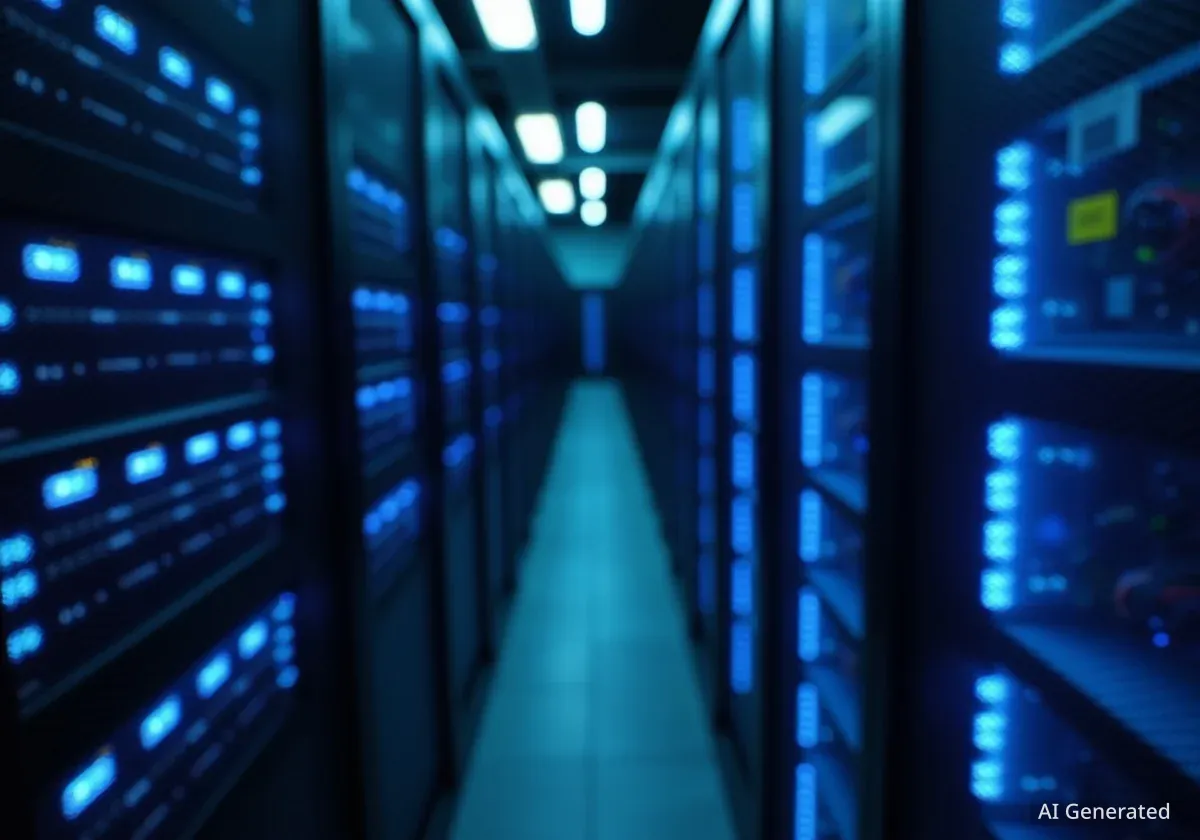Indosat, the Indonesia Technology Alliance (ITA), and China's Tsinghua University have signed a Memorandum of Understanding (MoU) to establish an AI Application Cooperation Center in Indonesia. The agreement, formalized at Tsinghua University, aims to accelerate the development and application of artificial intelligence in key sectors of the Indonesian economy.
This collaboration is designed to create an AI ecosystem that supports Indonesia's national development goals, with a focus on education, healthcare, and agriculture. The center is scheduled to be operational by early 2025.
Key Takeaways
- Indosat, ITA, and Tsinghua University will create an AI Application Cooperation Center in Indonesia.
- The initiative will focus on practical AI solutions for education, healthcare, and food security.
- The center is part of Indonesia's strategy to achieve its "Golden Indonesia 2045" vision.
- Indosat will leverage its digital infrastructure and Indonesia's first sovereign AI factory to support the project.
A Strategic Partnership for AI Development
The agreement was signed at Tsinghua University and witnessed by Parulian George Andreas Silalahi, the Deputy Ambassador of the Indonesian Embassy to China. The announcement was made during the 2025 China-ASEAN AI Ministerial Roundtable, highlighting the project's regional significance.
This partnership brings together three distinct entities: Tsinghua University, a leader in applied technologies; the Indonesia Technology Alliance, which works to advance the nation's digital ecosystem; and Indosat, a major digital telecommunications company in Indonesia.
Nezar Patria, Vice Minister of Communications and Digital Affairs of Indonesia, described the collaboration as a pivotal moment.
"This marks an important step toward Indonesia’s new technology era. By combining expertise and resources, we can accelerate AI adoption in Indonesia and contribute to technological progress not only in the region, but also on the global stage," he stated.
Targeting Key Sectors for National Growth
The primary objective of the AI Application Cooperation Center is to develop and implement AI technologies in sectors critical to Indonesia's long-term progress. The partners will concentrate their efforts on three main areas:
- Education: Developing AI tools to improve learning outcomes and expand access to quality education.
- Healthcare: Creating AI-driven solutions to enhance public health services and medical resource distribution.
- Agriculture: Using AI to improve food security and agricultural productivity.
Vikram Sinha, President Director and CEO of Indosat Ooredoo Hutchison, emphasized the practical benefits of this focus.
"AI can help bridge the resource gaps that limit equal opportunities for Indonesians, particularly in healthcare, education, and agriculture. By working with Tsinghua University and ITA, we aim to bring localized, practical AI solutions to Indonesia," Sinha said.
Tsinghua University has a long history in artificial intelligence research. According to Zhang Bo, Honorary Dean of the Institute for Artificial Intelligence, the university began its AI exploration in 1978, making it one of China's pioneers in the field.
Aligning with Indonesia's National Vision
This initiative directly supports Indonesia's ambition to become a developed nation by its centennial, a goal outlined in the "Golden Indonesia 2045" vision. Artificial intelligence is considered a fundamental component for increasing productivity, improving public services, and fostering innovation-led economic growth.
A key aspect of the partnership will be localizing AI solutions to fit Indonesia's specific economic and social landscape. This approach is intended to boost national competitiveness and ensure the benefits of digital transformation are widely distributed among the population.
The collaboration is also seen as a potential precursor to a broader strategic partnership between the governments of China and Indonesia. Discussions may involve China's National Development and Reform Commission (NDRC) and Indonesia's Ministry of Communications and Digital Affairs (MoCDA) to jointly develop AI capabilities.
Roles of the Key Partners
Each organization brings unique strengths to the collaboration. Indosat's role is particularly significant due to its extensive infrastructure and large customer base. The company will utilize its resources, including Indonesia's first sovereign AI factory, to deploy AI solutions on a national scale.
Justisiari P. Kusumah, Chairman of the Indonesia Technology Alliance, highlighted the collaborative model.
"This partnership demonstrates the power of combining government vision, industry expertise, and academic research to drive meaningful AI applications," he noted. "By working together, we can ensure that AI development in Indonesia is inclusive, impactful, and aligned with the nation’s long-term aspirations."
Tsinghua University's experience in AI spans multiple decades and applications. Zhang Bo stated, "The wide-ranging applications of AI in education, healthcare, transportation, and finance advance educational equity and enable a more balanced distribution of medical resources."
Future Outlook and Regional Impact
The AI Application Cooperation Center, expected to be ready in early 2025, will function as a central hub for developing AI solutions tailored for Indonesia. It will also focus on cultivating local AI talent, creating a pipeline of skilled professionals to support the country's digital economy.
This initiative represents a new model of technological cooperation between China and Indonesia. By building a robust and inclusive AI ecosystem, Indonesia aims to strengthen its position as a digital leader in Southeast Asia.
The long-term goal is to create a resilient and innovation-driven digital economy that benefits all Indonesians and contributes to the technological advancement of the wider region.





